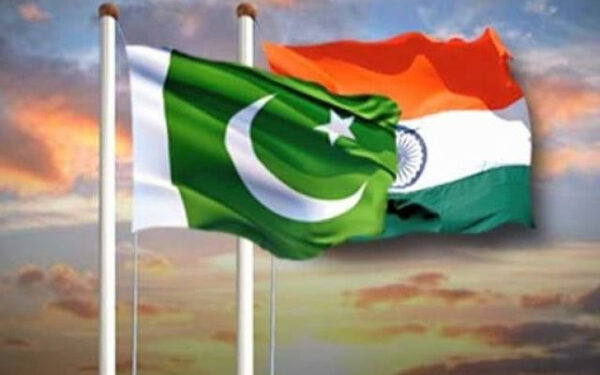In the wake of recent developments in occupied Kashmir, particularly the controversial Pahalgam incident, the Government of Pakistan has resolved to deliver a firm and comprehensive diplomatic response to what it calls the false propaganda initiated by the Indian government. Senior officials confirmed that Pakistan will expose India’s narrative and counter every unfounded allegation on international forums.
Background of the Pahalgam Incident
The Pahalgam incident, which occurred in the disputed region of Indian-administered Jammu and Kashmir, has once again heightened tensions between the two nuclear-armed neighbors. While Indian authorities quickly pointed fingers at Pakistan, alleging involvement of elements across the border, Islamabad has strongly rejected these accusations, labeling them as baseless and part of a broader propaganda strategy.
According to officials familiar with the matter, the Indian government under Prime Minister Narendra Modi has failed to provide any concrete evidence or credible arguments linking Pakistan to the Pahalgam event. The Pakistani leadership believes that this is yet another attempt by New Delhi to deflect attention from its own internal issues in Kashmir and to malign Pakistan on the global stage.
Pakistan’s Diplomatic Strategy to Counter India
In response, Pakistan has decided to intensify its diplomatic efforts by raising the issue on all relevant international platforms, including the United Nations, Organization of Islamic Cooperation (OIC), and other human rights bodies. The Ministry of Foreign Affairs has been tasked with crafting a strong and evidence-backed narrative that not only defends Pakistan’s stance but also highlights India’s ongoing human rights violations in Kashmir.
Sources within the federal government have revealed that the policy formulation is being conducted at the highest levels, with consultations taking place under the leadership of Prime Minister Shehbaz Sharif. The National Security Committee (NSC) is expected to meet soon to finalize a multi-pronged diplomatic and strategic response. Once approved, these measures will be swiftly implemented.
Proposed Measures Against India
As part of the proposed strategy, the government is considering a range of options to demonstrate its disapproval of India’s aggressive posture:
- Review of Diplomatic Ties: Pakistan may significantly reduce diplomatic relations with India. This could include scaling down staff at the Indian High Commission in Islamabad.
- Expulsion of Military Attachés: In the initial phase, Pakistan might expel all Indian defense, military, naval, and air attachés. This would serve as a strong signal of discontent.
- Airspace Restrictions: One of the key proposals being considered is banning Indian aircraft from using Pakistan’s airspace. This measure, if implemented, would have significant implications for regional aviation.
- Visa Suspension: Another step under discussion is the suspension of the visa issuance process for Indian nationals.
- Legal Action under the Indus Waters Treaty: In light of India’s recent threats to revoke water-sharing arrangements, Pakistan is contemplating taking the matter to the World Bank, which serves as a mediator under the Indus Waters Treaty of 1960. Officials clarified that India cannot unilaterally withdraw from this international agreement.
National and Parliamentary Mobilization
The government also intends to take Parliament into confidence regarding the situation. Prime Minister Shehbaz Sharif is expected to brief lawmakers on the diplomatic, strategic, and military aspects of the issue. A joint resolution may be introduced in Parliament condemning India’s baseless accusations and reaffirming Pakistan’s commitment to regional peace and stability.
This political unity would lend greater weight to Pakistan’s position at global forums. It is also expected to reinforce national cohesion on issues of sovereignty, regional peace, and the rights of the Kashmiri people.
Rejection of Indian Allegations
Top-level sources in Islamabad have reiterated that Pakistan has consistently condemned acts of terrorism and has played a key role in combating global terrorism. As a frontline state in the global war against terrorism, Pakistan has sacrificed thousands of lives and made substantial economic sacrifices.
Officials emphasized that India’s allegations come without merit and appear to be part of a pre-election strategy by the ruling Bharatiya Janata Party (BJP) to rally nationalist sentiment within India.
Pakistan’s diplomatic machinery has already begun preparing dossiers and briefing friendly countries, diplomats, and international organizations. These documents aim to present factual information and counter India’s propaganda with credible narratives.
International Community’s Role
Pakistan has urged the international community to take notice of India’s continuous provocations and baseless allegations. The Foreign Office, in multiple statements, has emphasized that these tactics only serve to escalate regional tensions and distract from pressing humanitarian issues in Indian-administered Kashmir.
The government also intends to use international media and think tanks to present its side of the story, further broadening the impact of its narrative.
Looking Ahead
With tensions simmering, Pakistan remains firm in its resolve to defend its sovereignty and expose India’s disinformation campaigns. Officials warn that any aggressive action by India will be met with a “full and befitting” response.
The upcoming NSC meeting and parliamentary session are expected to shape the country’s diplomatic course in the coming weeks. Meanwhile, Pakistan continues to appeal for peace, justice for Kashmiris, and responsible state behavior from India to avoid a dangerous escalation in South Asia.
Conclusion
The Pahalgam incident has reignited diplomatic tensions between Pakistan and India, with Islamabad preparing a robust response to New Delhi’s allegations. By leveraging international platforms and reassessing bilateral relations, Pakistan aims to push back against what it views as unjustified Indian aggression. Through a combination of diplomacy, strategic restraint, and legal channels, the Pakistani government is determined to safeguard its national interests and uphold the cause of the Kashmiri people.

























